[et_pb_section bb_built=”1″ admin_label=”section”][et_pb_row admin_label=”Row”][et_pb_column type=”1_4″][et_pb_text admin_label=”Text” background_layout=”light” text_orientation=”left” use_border_color=”off” border_color=”#ffffff” border_style=”solid”] ![]() [/et_pb_text][/et_pb_column][et_pb_column type=”3_4″][et_pb_text admin_label=”Major advertisers” background_layout=”light” text_orientation=”left” use_border_color=”off” border_color=”#ffffff” border_style=”solid” module_id=”Major advertisers”]
[/et_pb_text][/et_pb_column][et_pb_column type=”3_4″][et_pb_text admin_label=”Major advertisers” background_layout=”light” text_orientation=”left” use_border_color=”off” border_color=”#ffffff” border_style=”solid” module_id=”Major advertisers”]
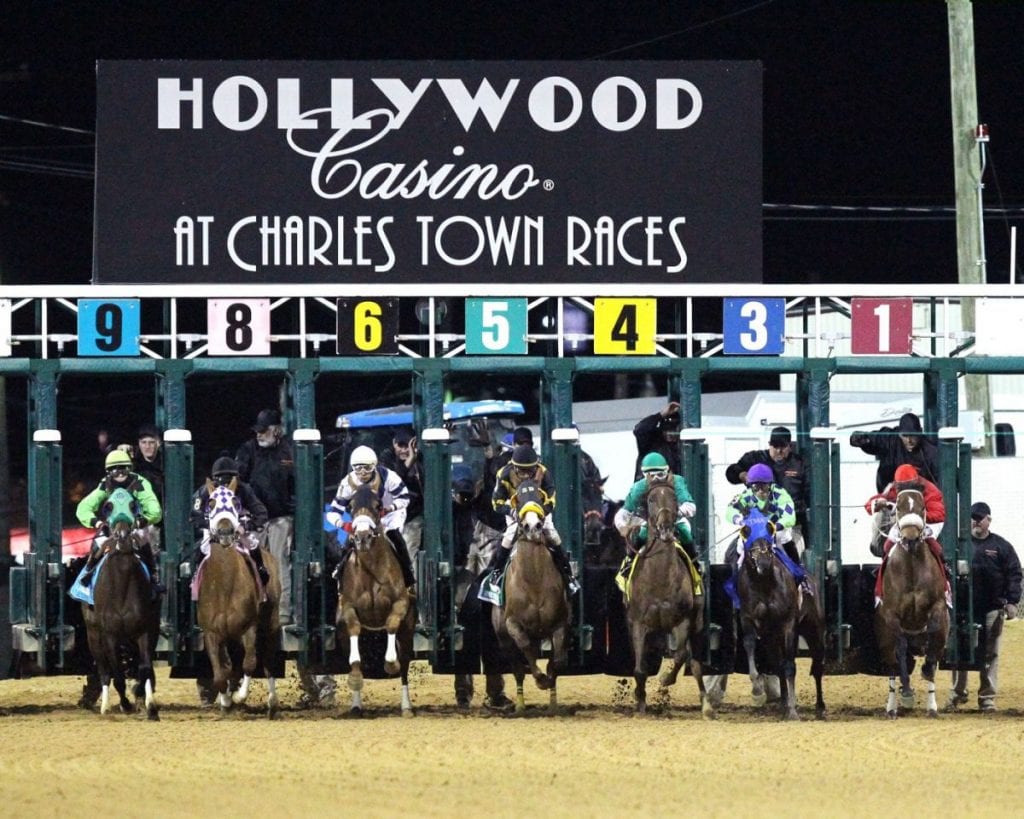
by Frank Vespe
Two of the horses in this evening’s second race at Hollywood Casino at Charles Town Races are trained by Sandra Dono for owner Ralph Dmitri’s Dmitri Racing Stable, Inc.
There’s nothing odd about that, of course; owners and trainers have multiple horses in a race all the time.
What will be different, however, Is that, under a new West Virginia rule, those horses will run as separate betting interests, rather than as a coupled entry.
[/et_pb_text][et_pb_text admin_label=”All advertisers” background_layout=”light” text_orientation=”left” use_border_color=”off” border_color=”#ffffff” border_style=”solid”]
The new rule eliminates the coupling of horses at West Virginia’s two thoroughbred tracks, Charles Town and Mountaineer Park. It restricts to two the number of horses that can be entered in an overnight race having common ties through ownership or training. In the event that two horses with common ties are entered, the rule directs the connections to make a preference for one of the horses.
“It was something that all the stakeholders were in agreement that we thought could help us get a couple additional betting interests,” said Erich Zimny, Charles Town’s Vice President of Racing Operations.
[/et_pb_text][et_pb_text admin_label=”Text” background_layout=”light” text_orientation=”left” use_border_color=”off” border_color=”#ffffff” border_style=”solid”]
[/et_pb_text][et_pb_text admin_label=”3rd part of story” background_layout=”light” text_orientation=”left” use_border_color=”off” border_color=”#ffffff” border_style=”solid”]
The rule leaves intact the existing language regarding preferences for stakes races. In a stake, when there are two or more horses owned by one owner or trained by one trainer, those horses “shall be given an equal draw according to the eligibility conditions of the race.”
At most tracks, horses receive preference dates based on when they enter and run. In oversubscribed overnight races, those with the oldest preference dates get in, with the remainder placed on the also-eligible list.
In practical terms, the new West Virginia preference language means that, when an overnight race overfills, the horse to which the connections give preference will get in, and the other likely will not. That troubles some horsemen.
“The uncoupling rule creates another betting interest, but didn’t incorporate the additional language that we proposed,” said Charles Town Horsemen’s Benevolent and Protective Association executive director Maria Catignani.
Her organization, which represents Charles Town’s horsemen, generally supports uncoupling entries but is concerned that this preference system may benefit out-of-town shippers at the expense of horses stabled on the grounds. It also can put trainers in a complicated spot in terms of choosing between two horses, and their owners.
“We’re going to try to change it through the rule-making process,” added Joe Funkhouser, a member of the HBPA board.
The uncoupling of entries can raise concerns about the integrity of races. For example, a trainer might enter two horses in a race with the intent of having one serve as a rabbit to create a favorable pace scenario for the other. When the horses are coupled, bettors may wager on the rabbit unaware of the tactical arrangement but still benefit; when they are uncoupled, that lack of knowledge will penalize them.
But Zimny said, on balance, the change made sense. More betting interests generally correlates to more wagering on a given race, which is good for the track and good for horsemen — and good for those horseplayers savvy enough to take advantage.
“One of the things I would say is that ‘rabbits’ have been a part of racing for a long time,” he said. “In our view, the positive of having an extra betting interest will outweigh the possibility of something like that happening.”
And Jeff Platt, president of the bettor-oriented Horseplayers Association of North American, said he would “applaud” the decision to uncouple entries.
Though he said his organization had not taken an official position on the matter, Platt said his conversations with horseplayers led him to believe that most would support the change.
“I’m of the opinion that most horse players are experienced and can spot uncoupled entries and handicap accordingly,” he said. “Speaking for myself, as a bettor and handicapper, I prefer betting on uncoupled entries versus coupled entries because you can get better value.”
NOTES: In addition to this change, Charles Town will also have a new waiver claiming rule going forward. That rule will allow connections to run a horse returning from a layoff of 180 days or more in a claiming race without exposing him to being claimed as long as he is running for a claiming tag equal to or greater than the one he ran for in his last start… West Virginia also has adopted new rules to bring its medication program into full compliance with the national uniform medication program…
[/et_pb_text][et_pb_text admin_label=”Minor advertisers” background_layout=”light” text_orientation=”left” use_border_color=”off” border_color=”#ffffff” border_style=”solid”]



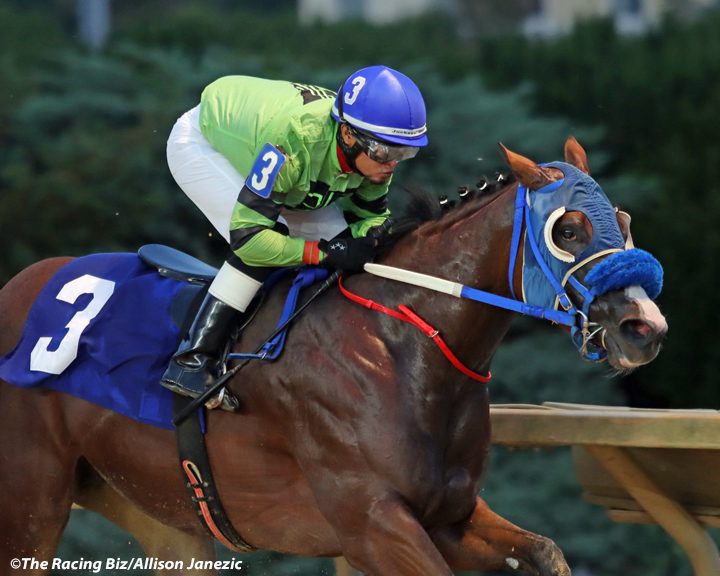


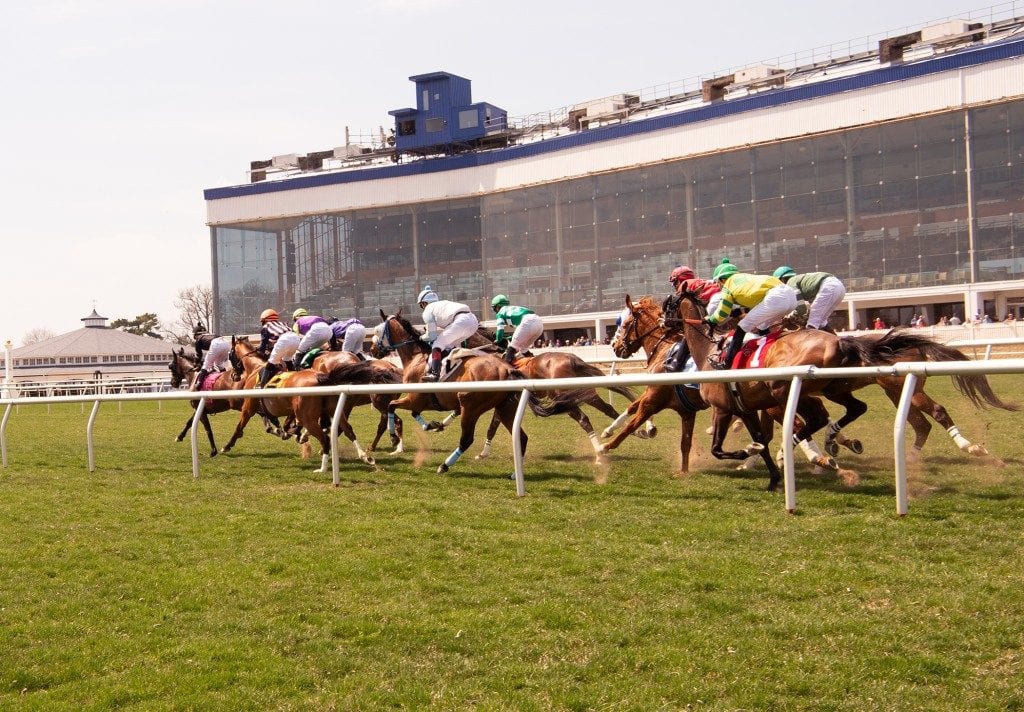
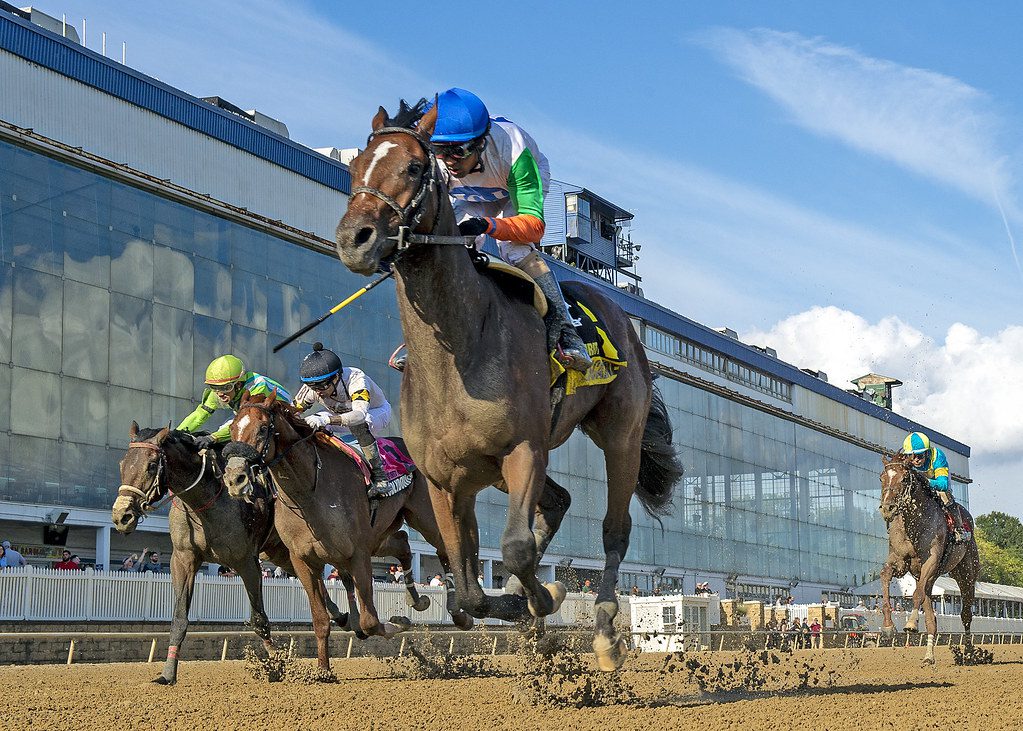
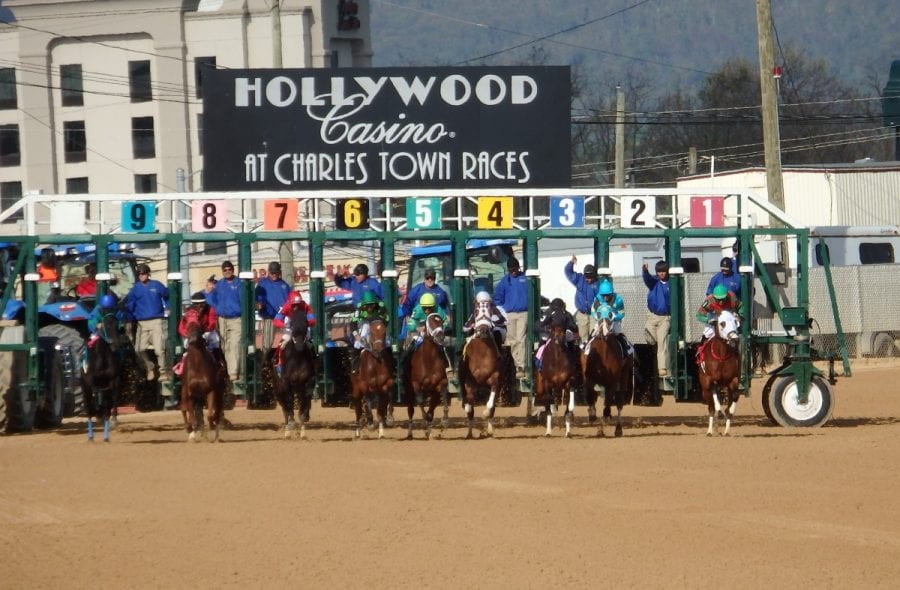
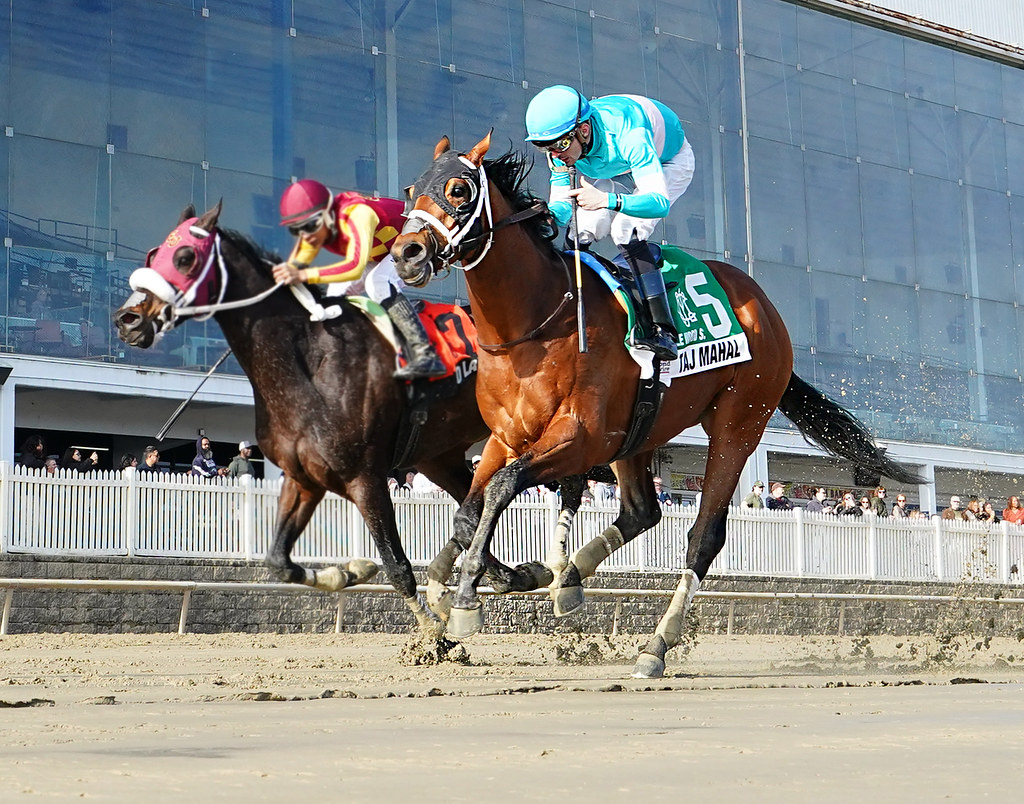
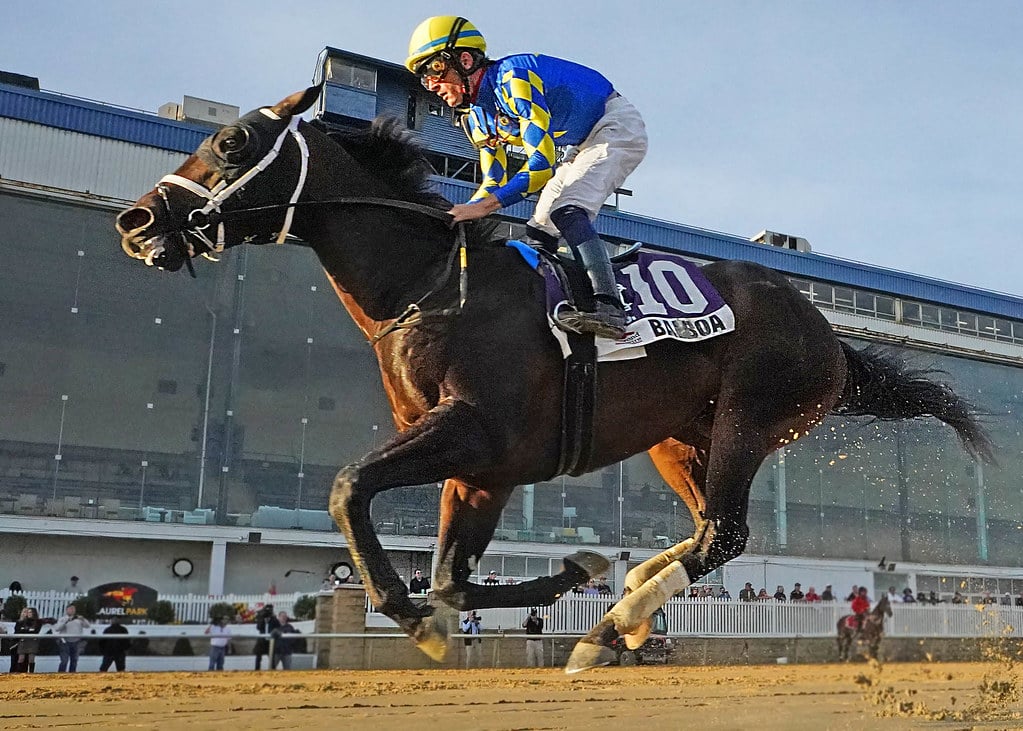
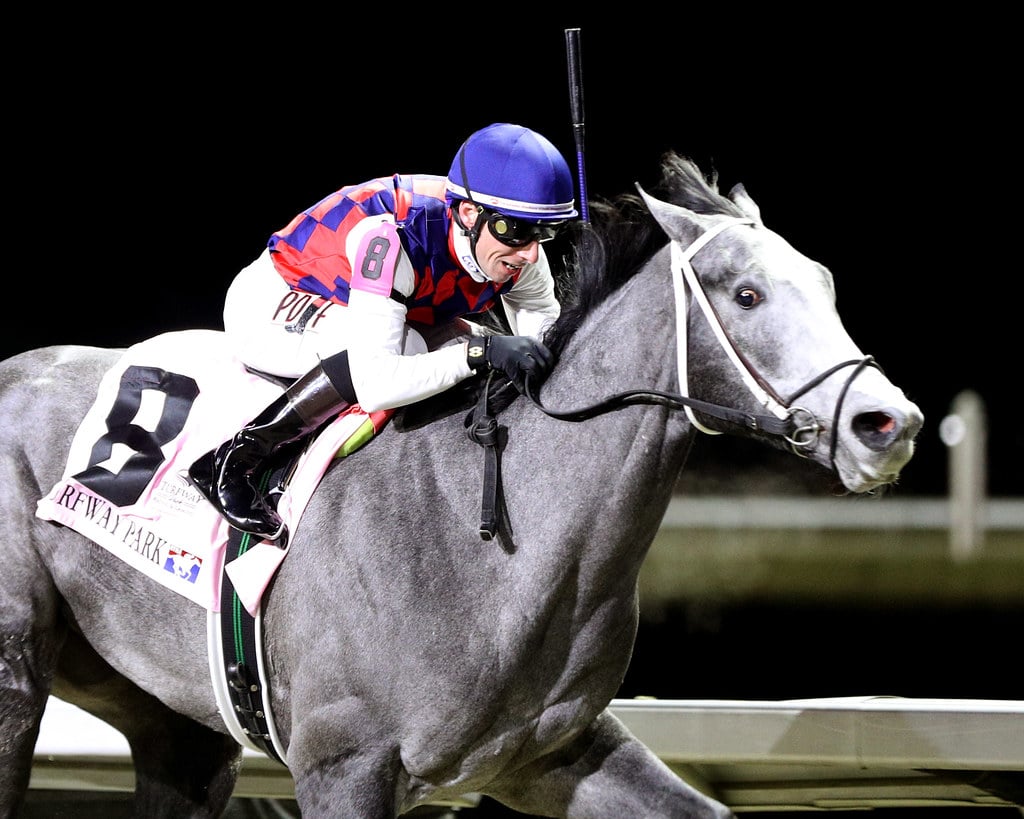


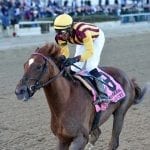
Buzz Nott
11th Jun 2017A question……..In the event of a late scratch of part of the entry, does the remaining part of the entry run for purse money only? Oh wait, that field reducing provision only applies to NYRA……Congrats to West Virginia racing officials and horsemen for eliminating the needless use of coupled entries. Goodbye 1A.